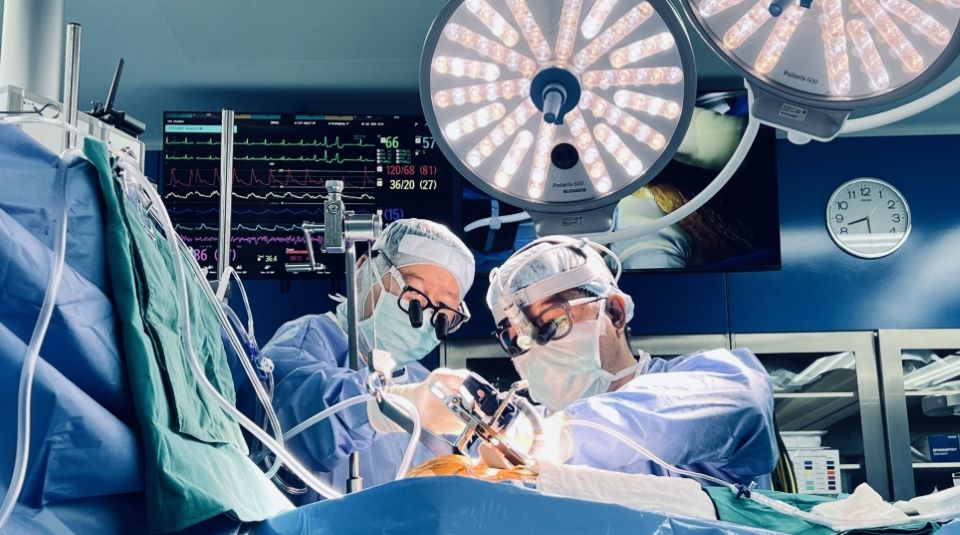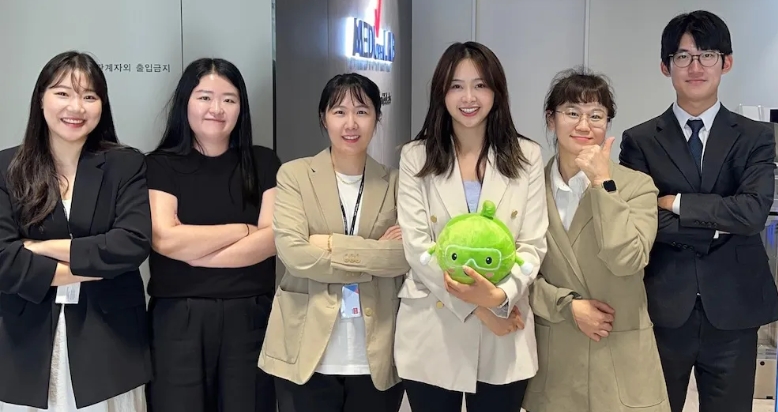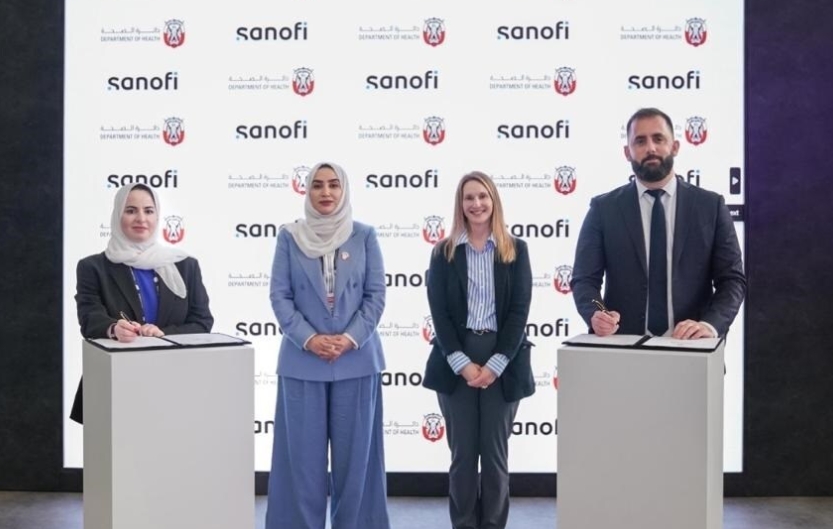
In 2016, the Singapore government committed to a S$4 billion budget to drive research and commercialisation activities in the health and biomedical sciences sector. Further supporting the initiative, Enterprise Singapore (EnterpriseSG), the statutory board of the Singapore Ministry of Trade and Industry, plays a vital role in supporting local startup ecosystems. In an interaction with BioSpectrum Asia, Audrey Lok, Director of Healthcare and Biomedical, EnterpriseSG shares insights on its role in promoting Singapore as an Asia-Pacific hub for startups and innovations.
How conducive is Singapore's startup ecosystem for fostering bioscience initiatives and empowering entrepreneurship?
COVID-19 has rapidly accelerated the pace of medical innovation and transformation, and it comes as no surprise that we now have more investors and startups in this sector. As of 2021, 400 biomedical startups and Small and Medium Enterprises (SMEs) in Singapore prioritise innovative solutions that address today’s healthcare needs or ones that address the pandemic. S$1.3 billion in biomedical investments across 40 deals have been recorded in the same year.
A part of this success can be attributed to the thriving ecosystem built upon strong public-private partnerships. Our public healthcare clusters have enabled many healthcare and biomedical startups to embrace innovation, by tapping the clinical strengths and expertise of our healthcare system to refine, develop and testbed solutions. In fact, they have been supporting more than 100 industry engagements and facilitations every year. They are also critical partners who identify new opportunities and encourage innovation to address healthcare challenges, pushing the industry forward. In 2020, EnterpriseSG and the Ministry of Health co-organised the Healthcare Open Innovation Challenge comprising five public and private healthcare corporate sponsors. Eleven problem statements were identified, 200 project submissions were received and seven projects were eventually shortlisted to co-develop solutions in areas such as fall prediction and prevention, patient engagement and experience, as well as disease diagnosis.
How would you describe EnterpriseSG’s role in stimulating startup ventures and creating a thriving ecosystem for SMEs innovations?
Our core mandate at EnterpriseSG is to support Singapore’s local enterprises to become more productive, innovative and to internationalise. As part of that, we also aim to create an environment that drives innovation and is conducive for businesses. EnterpriseSG assists startups in three ways.
First, helping early-stage innovative startups get access to financing, facilities, mentorship and talent. We are committed to catalysing investments into deep-tech startups and increasing growth-stage funding through Startup SG Equity, where we partner with other investors from across the world to co-invest in high-growth and high-potential companies. This risk-sharing model gives investors a boost of confidence that their financial support will be channelled to help competitive startups. Although we face global headwinds and some investors are taking on a more cautious stance, we are encouraged to see that the startup investments grew a strong 45 per cent per annum from 2017 to 2021.
To complement that, we are also creating a robust network of innovation infrastructure to connect our startup communities and catalyse co-innovation opportunities. We work with polytechnics and research institutes to set up Centres of Innovation. To date, we have 11 such centres with distinct industry focus, providing SMEs with access to an array of resources ranging from laboratory facilities to training and consultancy services, to embark on industry-led innovation. On the human capital front, we are also doubling efforts to develop local talents and attract global ones through initiatives such as the Global Ready Talent programme and EntrePass scheme.
Second, we work with partners to facilitate connections to the market and achieve product-market fit. This involves nurturing a vibrant startup ecosystem, underpinned by a consolidated and collaborative network of ecosystem partners- accelerators, incubators, corporates and investors- that provide fertile ground for startups to tap into the resources they need to scale from Singapore. Our Open Innovation Challenges are one such avenue matching corporates and startups together to generate win-win outcomes. Corporates open to leveraging open innovation can tap a bigger pool of ideas and spectrum of competencies to improve their business operations. For startups and SMEs, they can address industry demand and ensure market fit, accelerating the commercialisation process.
Third, we support startups in finding the right overseas partners and clients to scale their businesses globally. We want to foster global connections to drive cross-border exchange in ideas, knowledge and talent. We have recently expanded our Global Innovation Alliance Network to include nodes in over 17 cities, to facilitate two-way flow of collaboration in innovation. By connecting Singapore and other international startups to leading innovation ecosystems, startups based here are given the opportunities to set up, testbed and commercialise solutions with partners across the region. Global tech startups and ecosystem players can also come to Singapore to access and expand into Southeast Asia.
These three main guiding pillars will allow us to continue supporting innovative startups and SMEs, by bridging the funding gap, catalysing deal flows and implementing the necessary networks that provide startups with tools and resources as they grow to go global. Many of the successful entrepreneurs move on to provide mentorship or investment, grooming the next generation of startups. This cycle adds to the vibrancy of our startup and innovation ecosystem and produces value-added services and new job opportunities for Singaporeans.
What are the collaborative and partnering opportunities EnterpriseSG offers to the startup and SME community?
In addition to the above, EnterpriseSG ecosystem partners such as incubators, accelerators, readily offer mentorship, networks and resources to support biotech startups. This is critical as the challenges faced by the industry are unique and have a longer gestation period. For example, many must navigate additional processes such as ensuring compliance, getting the necessary regulatory approvals, and adhering to moderated clinical investigations. Early-stage biotech startups face the added challenge of having to invest in expensive laboratory equipment even before starting their experiments. Therefore, having ecosystem partners like NSG Biolabs that provides early stage biotech startups access to equipment, laboratory and office space via a co-sharing model, is critical for biotech entrepreneurs who need to optimise capital in the early years. Supported by EnterpriseSG, the site not only provides a conducive environment with specialised resources and expertise, but also fosters a community of biotech entrepreneurs to leverage complementary strengths in collaboration.
Local startups can also tap into schemes such as the Startup SG Tech and the Enterprise Development Grant for support.
How do you envision entrepreneurship in the highly competitive bioscience sphere?
Whether in biotech or other sectors, the critical thing is that the solutions being developed must have a strong value proposition and solve real challenges or market-led demand. Innovations that serve a purpose, paired with a good go-to-market strategy will be attractive to VCs. This is why we will continue to drive collaboration between all stakeholders in our innovation ecosystem, including 220 accelerators and incubators as well as the 30 research institutes here, who provide valuable research expertise and funding for the over 3,900 startups based in Singapore.
Hithaishi C Bhaskar
hithaishi.cb@mmactiv.com




